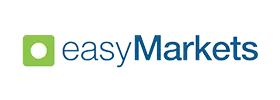Forex brokers can be categorised into three main types based on how they execute orders: Market Makers, STP (Straight Through Processing) brokers, and ECN (Electronic Communication Network) brokers. In this comprehensive guide, we will focus on the first group.
Market Makers, also known as dealing desk (DD) brokers, play a crucial role in the foreign exchange market by providing liquidity and facilitating trades. As this execution model is relatively widespread, we have carefully selected the top DD brokerages that stand out with competitive spreads and impressive execution speeds.

Below you can find a list of Market Maker Forex brokers:
Top 7 Forex Brokers that are Market Makers
-
eToro
- Popular broker for social trading
- Trading is conducted on innovative in-house platform
- Offers both investing and trading products
Trading InstrumentsDeposit Methods- Commodity CFDs
- Crypto CFDs
- ETF CFDs
- Forex CFDs
- Index CFDs
- Metal CFDs
- Share CFDs
- Stock CFDs
- US Stock CFDs
-
Plus500
- Multi-Level Regulated Broker
- Proprietary trading platforms
- Easy to use mobile app
Trading InstrumentsDeposit Methods- Commodity CFDs
- Crypto CFDs
- Energy CFDs
- ETF CFDs
- Forex CFDs
- Index CFDs
- Metal CFDs
- Share CFDs
- Stock CFDs
- US Stock CFDs
-
XM Group
- XM provides great trading experiences using MetaTrader 4 and MetaTrader 5, which are improved by personalized features.
- Zero commission accounts are available
- Top-tier regulation from CySEC, ASIC, FSC, and DFSA oversee XM's operations, assuring transparency and client safety.
Trading InstrumentsDeposit Methods- Bonds CFDs
- Commodity CFDs
- Crypto CFDs
- Energy CFDs
- ETF CFDs
- Forex CFDs
- Forex Options
- Index CFDs
- Index Options
- Metal CFDs
- Share CFDs
- Stock CFDs
- Stock Options
- US Stock Options
-
easyMarkets
- Innovative tools like to manage risk effectively.
- EasyMarkets provides access to Forex, Indices and Stocks
- Proprietary EasyMarkets platform available, as well as MetaTrader 4 (MT4), to suit both beginner and experienced traders.
Trading InstrumentsDeposit Methods- Commodity CFDs
- Crypto CFDs
- Forex CFDs
- Forex Forwards
- Forex Options
- Index CFDs
- Metal CFDs
- Metal Options
- Share CFDs
-
AvaTrade
- Minimum deposits from $100
- Licensed by 11 regulatory bodies
- Retail forex leverage of up to 1:400
Trading InstrumentsDeposit Methods- Bonds CFDs
- Commodity CFDs
- Crypto CFDs
- Crypto Options
- Energy CFDs
- ETF CFDs
- Forex CFDs
- Forex Options
- Index CFDs
- Index Options
- Metal CFDs
- Share CFDs
- Stock CFDs
- Stock Options
- US Stock Options
-
XTB
- XTB is a publicly traded company regulated by FCA and CySEC
- XTB's proprietary mobile app enables traders to trade from anywhere
- Commission-free stock trading with no platform fees and direct access to thousands of shares
Trading InstrumentsDeposit Methods- Commodity CFDs
- Crypto CFDs
- Energy CFDs
- ETF CFDs
- Forex CFDs
- Index CFDs
- Metal CFDs
- Share CFDs
- Stock CFDs
- US Stock CFDs
-
ActivTrades
- Winner of 20+ Global Awards
- MT4/MT5, TradingView
- Leverage up to 1:400
Trading InstrumentsDeposit Methods- Bonds CFDs
- Commodity CFDs
- Crypto CFDs
- ETF CFDs
- Forex CFDs
- Index CFDs
- Share CFDs
Our 8-step guide to choosing a forex broker
- Verify regulation and authorisation (e.g., FCA, ASIC).
- Check trading costs: spreads, commissions, swaps.
- Compare execution quality: slippage, fills, order types.
- Check platforms and tools: MT4/MT5, cTrader, TradingView.
- Ensure risk controls: stop-loss, guaranteed stops, negative balance protection.
- Review funding and withdrawals: local options, fees, processing times.
- Evaluate research, education, and alerts.
- Prioritise security and support: segregated client funds, two-factor authentication, support hours.
Brokers Compared by Spread
FX Brokers Deposit Method Comparison
| Brand | Minimum deposit | |
|---|---|---|
| eToro | $50 or $100 based on country ($10 for the UK) | |
| Plus500 | $100 | |
| XM Group | $5 | |
| easyMarkets | $25 ($2,000 for MT4 Premium, $10,000 for MT4 VIP) | |
| AvaTrade | $100 | |
| XTB | $250 | |
| ActivTrades | $0 |
Brokers by Regulator
| Brand | Maximum leverage | |
|---|---|---|
| eToro | 1:400 (CySEC | Pro Account), 1:30 (CySEC | Retail Account), 1:400 (FSAS | Retail Account) | |
| Plus500 | 1:300 (Pro Account), 1:30 (ASIC | Retail Account), 1:30 (CySEC | Retail Account), 1:30 (FCA | Retail Account), 1:30 (FMA | Retail Account), 1:30 (DFSA), 1:300 (FSAS), 1:20 (MAS), 1:300 (SCB) | |
| XM Group | 1:30 (CySEC | Retail Account), 1:1000 (IFSC | Retail Account) | |
| easyMarkets | 1:500 (ASIC | Pro Account), 1:500 (CySEC | Pro Account), 1:30 (ASIC | Retail Account), 1:30 (CySEC | Retail Account), 1:2000 (FSAS | Retail Account) | |
| AvaTrade | 1:400 (Pro Account), 1:30 (Standard Account) | |
| XTB | 1:200 (CySEC | Pro Account), 1:30 (CySEC | Retail Account), 1:30 (FCA | Retail Account), 1:500 (IFSC | Retail Account) | |
| ActivTrades | 1:400 (CMVM | Pro Account), 1:30 (CMVM | Retail Account), 1:1000 (FSC), 1:200 (SCB) |
Forex Brokers Platform Availability
| Brand | FX pairs to trade | |
|---|---|---|
| eToro | Proprietary | |
| Plus500 | Proprietary Mobile, Proprietary Web | |
| XM Group | MetaTrader 4, MetaTrader 4 MultiTerminal, MetaTrader 5, Proprietary Mobile, Proprietary Web | |
| easyMarkets | MetaTrader 4, MetaTrader 5, Proprietary Mobile, Proprietary Web, TradingView | |
| AvaTrade | MetaTrader 4, MetaTrader 5, Proprietary Web | |
| XTB | Proprietary | |
| ActivTrades | MetaTrader 4, MetaTrader 5, Proprietary Web, TradingView |
Comprehensive Comparison of the Best Market Maker Brokers
We will explore the inner workings of Market Maker Forex Brokers, comparing them to other types of brokers, and discussing the advantages and disadvantages of trading with them. By the end of this page, you will have a comprehensive understanding of Market Maker Forex Brokers and be able to make informed decisions about your trading needs.
Market Maker Forex Brokers – How Do They Operate?
Market Maker Forex Brokers serve as intermediaries between buyers and sellers in the foreign exchange market. They “make” or set the bid and ask prices for currency pairs, providing liquidity to the market. This means they are always ready to buy or sell a currency pair at the prices they set, allowing traders to enter and exit positions quickly and efficiently.
Market Makers maintain a large inventory of currencies, which they use to fulfil trades. They profit from the spread-the difference between the buy and sell prices-as well as from any commissions or fees they charge. Market Makers also often provide additional services, such as research and analysis, to help traders make informed decisions.
One of the key characteristics of Market Makers, as mentioned above, is their ability to provide liquidity to the market even during periods of low trading activity. However, this also means that they can influence the prices of currency pairs, which may be a concern for some traders.
To illustrate how Market Maker Forex Brokers operate, consider the following example. Suppose you want to buy one lot of EUR/USD through a Market Maker broker. The broker quotes a price of 1.1000, and you buy at this level. The broker then hedges the exposure by purchasing the currency from another market participant, such as a bank or another broker, at a slightly lower price, say 1.0995. The broker’s profit is the difference between the two prices-0.0005, or five pips.
Comparison between Market Makers, STP, and ECN Forex Brokers
As mentioned above, there are several types of Forex brokers, each with its own characteristics, advantages, and disadvantages. Market Makers, STP (Straight Through Processing) brokers, and ECN (Electronic Communication Network) brokers are three of the most common types of brokers.
-
Market Makers
Market Makers act as intermediaries between buyers and sellers, setting the bid and ask prices for currency pairs. They provide liquidity to the market and profit from the spread and any commissions or fees they charge.
-
STP Brokers
STP brokers, on the other hand, act as intermediaries between traders and liquidity providers. They do not set the bid and ask prices themselves but instead route trades to liquidity providers, such as banks or other brokers.
-
ECN Brokers
ECN brokers are similar to STP brokers, but they provide direct access to the interbank market, allowing traders to interact with multiple liquidity providers.
The main difference between Market Makers, STP brokers, and ECN brokers is the way they provide liquidity to the market. Market Makers provide liquidity themselves, while STP and ECN brokers route trades to liquidity providers. This can affect the prices and execution of trades, as well as the level of transparency and accountability.
Here is a summary of the main differences between Market Maker, STP, and ECN Forex Brokers:
- Act as counterparties to clients’ trades
- Provide liquidity to the market
- Fixed spreads
- No commissions
- Act as intermediaries between clients and other market participants
- Route trades to other market participants
- Variable spreads
- May charge commissions
- Use electronic communication networks to connect clients with other market participants
- Provide access to a large pool of liquidity providers
- Tightest spreads
- May charge commissions
Advantages and Disadvantages Related to Trading with Market Maker Forex Brokers
Trading with Market Maker Forex Brokers entails both advantages and disadvantages. We have listed them below so traders can make informed decisions about the brokers with which they choose to open accounts.
Advantages
- Tighter Spreads: Market Makers often provide tighter spreads, as they control both prices and liquidity. In contrast to STP/ECN brokers, which offer floating spreads, Market Maker Forex brokers typically offer fixed spreads.
- Faster Execution: Market Maker Forex Brokers often have fast execution speeds, which can be beneficial for traders who need to enter and exit trades quickly. Fast execution can help traders take advantage of market opportunities and avoid losses due to slow execution.
- Additional Services: Market Makers often provide additional services, such as research and analysis, to help traders make informed decisions.
- Liquidity: Market Makers are able to provide liquidity to the market, even in times of low trading activity, which can be beneficial for traders who want to trade large volumes. They act as the counterparty to their clients’ trades, ensuring that there is always a buyer or seller available to execute trades.
Disadvantages
- Conflicts of Interest: Market Makers may be more prone to conflicts of interest, as they set the bid and ask prices and profit from the spread.
- Less Transparent Pricing: Market Makers may not provide transparent pricing, as they set the bid and ask prices themselves, which can be a concern for some traders.
- Higher Commissions: Market Makers may charge higher commissions or fees, as they are providing liquidity and executing trades.
It is worth noting that the advantages and disadvantages of trading with Market Maker Forex Brokers can vary depending on the specific broker and on the trader’s individual needs and goals. It is therefore essential to conduct your own research and choose a reputable, trustworthy broker that meets your requirements.
How to Mitigate the Possible Drawbacks of Trading with Market Maker Forex Brokers?
To mitigate the potential disadvantages of trading with Market Maker Forex Brokers, traders can take several steps:
- Choose a Reputable Broker: Traders should choose a reputable Market Maker Forex Broker that is regulated by a respected regulatory body.
- Read Reviews: Traders should read reviews and conduct thorough research to find a broker that meets their needs and has a solid reputation.
- Understand the Trading Conditions: Traders should understand the trading conditions, including spreads, commissions, leverage, and execution speed, before opening an account.
- Use Risk Management Techniques: Traders should use risk management techniques, such as stop-loss orders and position sizing, to reduce the risk of losses.
- Monitor the Broker’s Performance: Traders should monitor the broker’s performance, including execution speed and slippage, to ensure it meets their trading needs.
FAQs
How do Market Makers operate?
Market Makers operate by maintaining a large inventory of currencies, which they use to fulfil trades. They profit from the difference between the bid and ask prices, known as the spread, and any commissions or fees they charge.
How do Market Makers differ from STP and ECN brokers?
Market Makers differ from STP and ECN brokers in the way they provide liquidity to the market. Market Makers provide liquidity themselves, while STP and ECN brokers route trades to liquidity providers.
How can I choose a reputable Market Maker Forex Broker?
To choose a reputable Market Maker Forex Broker, you should do your research, read reviews, and check for regulatory compliance. You should also consider factors such as the broker’s reputation, trading conditions, and customer support.
What are the benefits of using a Market Maker Forex Broker?
The benefits of using a Market Maker Forex Broker include tighter spreads, faster execution, and additional services such as research and analysis.
What is the future of the Market Maker Forex Broker industry?
The future of the Market Maker Forex Broker industry is likely to be shaped by advances in technology, changes in regulation, and shifts in market trends. As the industry continues to evolve, it is likely that we will see more brokers offering innovative products and services, as well as increased competition and consolidation.
Conclusion
Market Maker Forex Brokers play a crucial role in the foreign exchange market, providing liquidity and facilitating trades for investors. While they have their advantages, such as tighter spreads and faster execution, they also have their disadvantages, such as potential conflicts of interest and less transparent pricing.
When choosing a Forex broker, it’s essential to consider your individual needs and goals, as well as the characteristics and advantages of each type of broker. By doing your research and selecting a reputable and trustworthy broker, you can ensure that you receive the best possible trading experience.
Why You Should Trust RationalFX
When it comes to making informed decisions about forex brokers, it's essential to rely on trustworthy sources. RationalFX, a company with over 20 years of experience since its founding in 2005, has established itself as a credible authority in the industry. With an impressive collection of over 2500 reviews on Trustpilot, boasting a score of 4.2, it's clear that Rational FX has built a reputation for providing reliable and unbiased information.
What sets Rational FX apart is its rigorous evaluation process, which considers over 30 different criteria when selecting forex brokers. This comprehensive approach ensures that every aspect of a broker's service is taken in consideration, including regulation, forex spreads, trading platforms, deposit methods, and reputation. With its wealth of experience, transparent review process, and outstanding customer feedback, Rational FX is a trusted source for anyone seeking reliable information on forex brokers. You can reach us via e-mail at feedback@rationalfx.com or contact us through our social media accounts here: Facebook, YouTube, or leave a feedback here.












